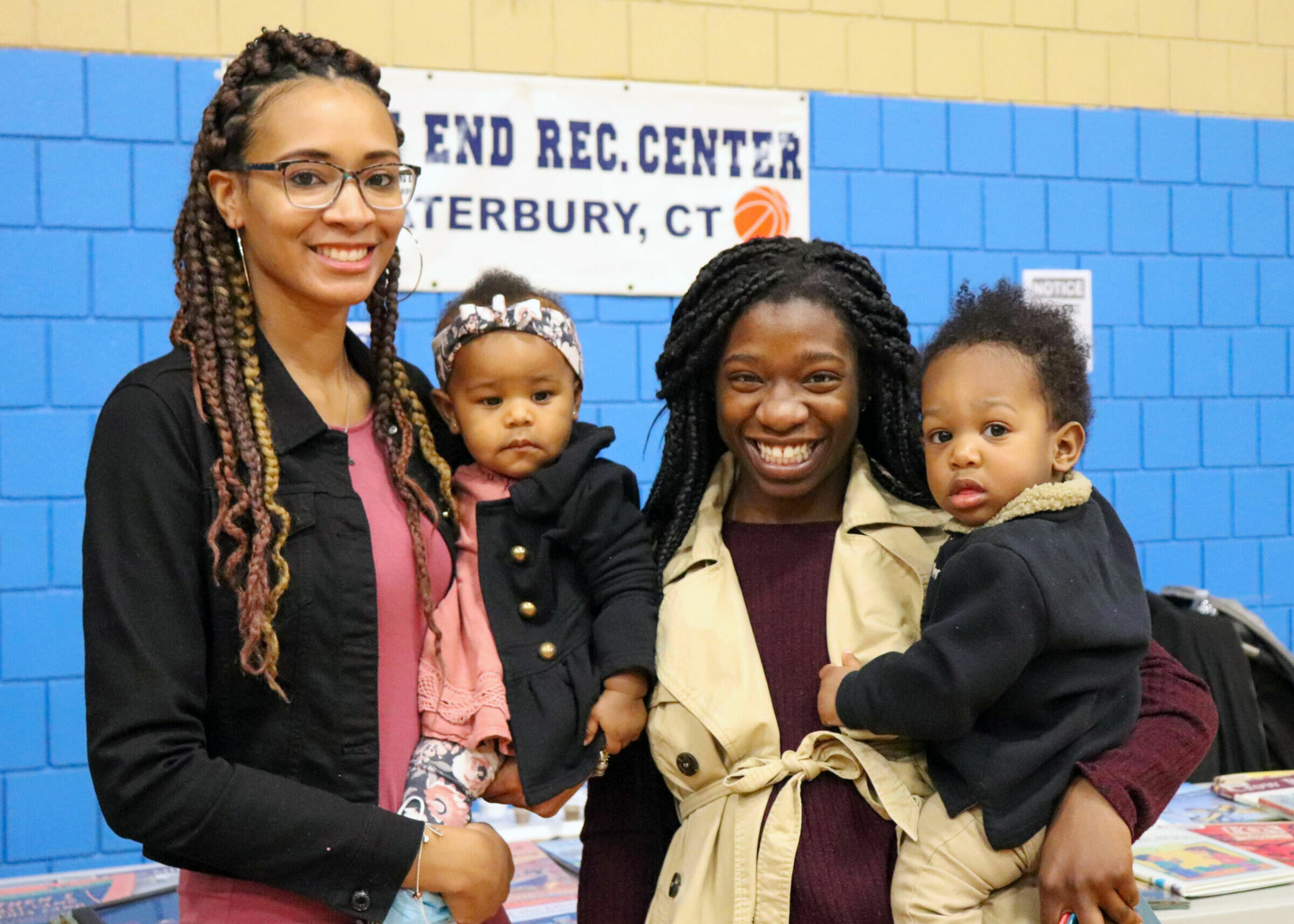
A staggering fact: The risk of maternal death is three to four times higher for Black women than for their white counterparts. Even accounting for differences in income or education, Black mothers are significantly more likely to die from pregnancy-related causes. While proper prenatal care can improve maternal health outcomes, 18.6% of pregnant women in Waterbury receive late prenatal care or none at all.
Against this backdrop, and with grant support from Connecticut Community Foundation, Waterbury Bridge to Success Community Partnership, Greater Waterbury Health Partnership, StayWell Health Center, and Woman’s Choice Perinatal have formed an Infant and Maternal Health Workgroup. The partners are working together to forge connections across sectors among clinical providers, community-based organizations, childbirth educators, doulas, and others involved in patients’ care. The group’s work focuses particularly on improving outcomes for Black and Hispanic mothers, who are disproportionately affected by the shortcomings in existing systems.
Increasing access to and awareness of doula services is a top priority. A doula is a trained, non-clinical professional who supports a pregnant person before, during, and after childbirth—support that research has shown reduces rates of adverse birth outcomes. Woman’s Choice Perinatal, founded and led by doula Ashanti Rivera, will facilitate doula training for StayWell home visiting staff in order to increase the number of trained doulas serving women of color in Waterbury. To Rivera, the collaborative nature of the initiative’s work and the tradition of women helping other women through pregnancy are linked. “True maternal health is guided and rooted in a spiritual legacy and ancestral guidance. It takes a village. If there are no villages, my hope is that I can help create one.”
For its part, Waterbury Bridge to Success is focusing on education, outreach, and advocacy. As executive director Althea Marshall Brooks explains, “Our objective for this project is to provide ongoing education to broaden awareness of the holistic support doulas can provide women of color. A crucial factor in ensuring the welfare of a mother and her baby is providing access to quality prenatal and postnatal care.” To that end, Bridge to Success launched the #Day43 educational campaign, prompted by a study that found the burden imposed by pregnancy and birth on a woman’s body can extend beyond the six-week period after birth—the point at which most women cease to receive postpartum obstetric care. The same study found that late maternal deaths—those occurring more than 42 days postpartum—were 3.5 times more likely among Black women than white women.
In helping to coordinate the varied efforts of the Infant and Maternal Health Workgroup’s members, Greater Waterbury Health Partnership executive director Angie Matthis highlights the importance of ensuring that those most affected by poor health outcomes both inform the work and are able to access the care and connections the partners provide. Said Matthis, “It’s important to elevate organizations led by people of color to lead the charge of outreach to and input from residents across the diversity spectrum who are suffering disparities.” Through their work, the partners aim to establish new models of maternal health care for Waterbury women of color, with the ultimate goal of reducing stark racial disparities and ensuring that more births end in joy, promise, and good health.







